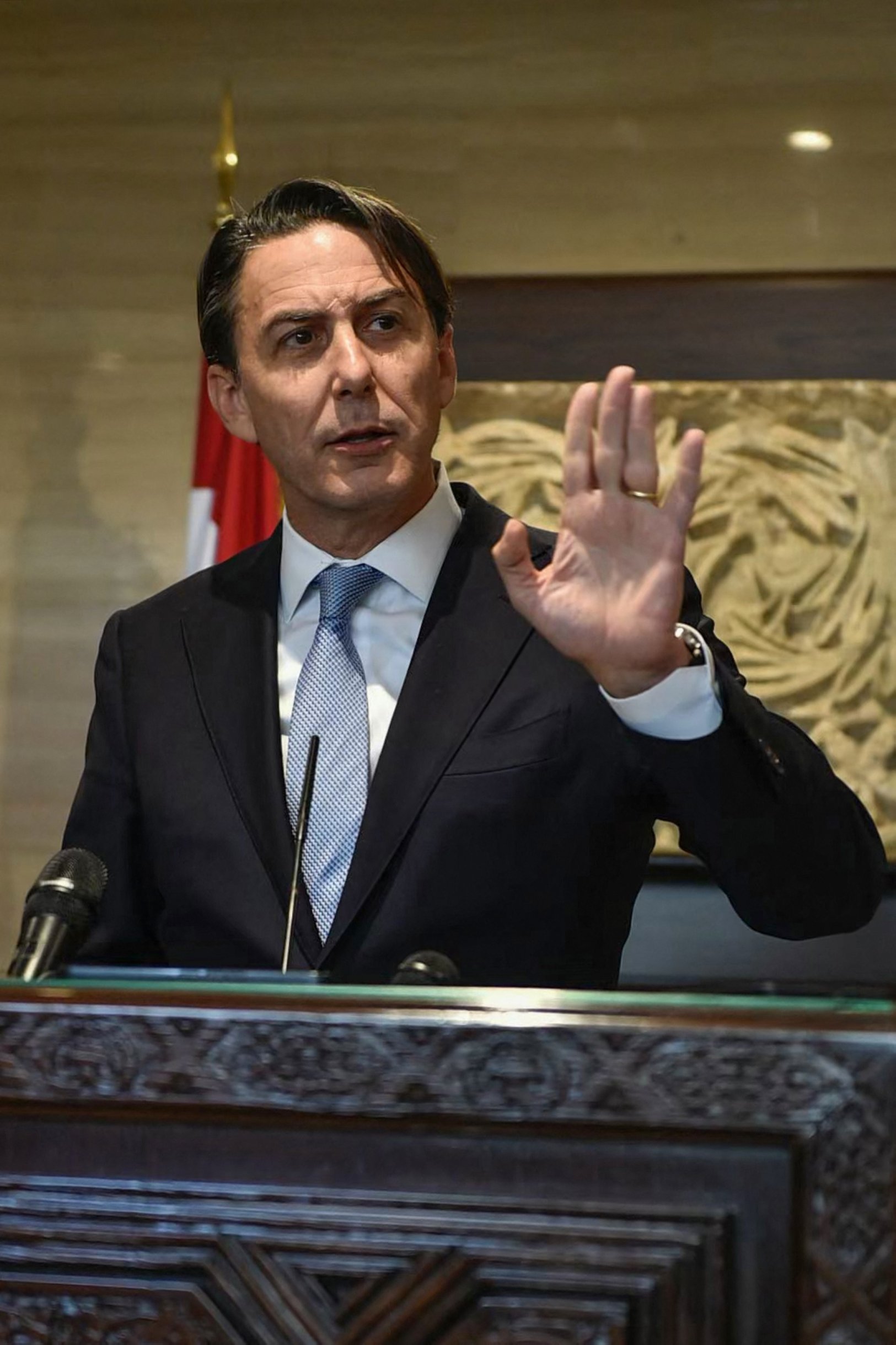© Turkuvaz Haberleşme ve Yayıncılık 2024
Washington wants to end the Israel-Hezbollah war "as soon as possible," visiting U.S. envoy Amos Hochstein said Monday, adding that it was not in Lebanon's interests to link its fate to other conflicts
"Tying Lebanon's future to other conflicts in the region was not and is not in the interest of the Lebanese people," Hochstein told a press conference after meeting with Lebanon's parliament speaker Nabih Berri, a Hezbollah ally.
He was in Beirut to discuss cease-fire terms between Israel and Hezbollah, as Israel targeted Hezbollah’s financial network across Lebanon on Monday.
Diplomacy has failed to cool down Israeli aggression in Lebanon and Gaza, which are grinding into a second year.
Washington is hoping for a new push for peace in the Middle East following Israel's killing last week of Yahya Sinwar, leader of Hamas and alleged architect of the Oct. 7 incursion that triggered Israel's genocidal war on Gaza.
U.S. officials are seeking to broker a truce in Lebanon, where Israel launched a ground campaign over the past month and has killed most of the senior leadership of Hezbollah, an Iran-backed group which says it is fighting Israel on behalf of the Palestinians.
Overnight, Israel attacked sites in Beirut, southern Lebanon and the Bekaa Valley, targeting the branches of an alternative banking system that Israel says is run by Hezbollah to finance its operations. Hundreds of families fled homes near the targeted locations ahead of the strikes, though no casualties were immediately reported.
Reuters saw plumes of black smoke billowing in the air after at least 10 blasts in Beirut suburbs. Panicked crowds clogged streets and caused traffic jams in some parts of the city as they tried to get to neighborhoods thought to be safer.
"Strike, strike, strike with planes and drones, and we don’t know who they are targeting and who will die each day," said Micheline Jabbour, who works in a Beirut pastry shop.
The Israeli military said before its overnight attacks that it was targeting the Al-Qard Al-Hassan Association, an alternative to the Lebanese banking system that the U.S. alleges is used by Iran-backed Hezbollah to manage its finances.
The association has more than 30 branches across Lebanon including 15 in densely populated parts of central Beirut and its suburbs.
There was no immediate statement from the organization, Hezbollah or the Lebanese government.
U.S. envoy Hochstein was set to meet Lebanon's caretaker Prime Minister Najib Mikati and speaker of parliament Nabih Berri on Monday.
Berri told the Al-Arabiya broadcaster over the weekend that Hochstein's visit was "the last chance before the U.S. elections" to reach a truce. But Berri said would reject any changes to the agreement which ended the last major war between Hezbollah and Israel in 2006.
Beirut residents said they had little expectation that the U.S. official's visit would bring a breakthrough.
Israel's military has not slowed down its offensives and is also preparing to retaliate for an Iranian missile barrage earlier this month, though Washington has pressed it not to strike Iranian energy facilities or nuclear sites.
Iran has complained to the U.N. nuclear watchdog about Israel's threats against its nuclear sites, Foreign Ministry spokesperson Esmaeil Baghaei said Monday at a weekly news conference.
The U.S. military has rushed its advanced anti-missile system to Israel, which is now "in place," U.S. Defense Secretary Lloyd Austin said during a trip to Kyiv.
Austin declined to say whether the Terminal High Altitude Area Defense system, or THAAD, was operational. But he added: "We have the ability to put it into operation very quickly and we're on pace with our expectations."
Israel's campaign in Lebanon has driven 1.2 million people from their homes. It says its aim is to drive Hezbollah fighters from the border region so tens of thousands of Israelis can return to homes they were forced to flee over the past year from Hezbollah cross-border fire in solidarity with the Palestinians.

Israel has given the United States a document with its conditions for a diplomatic solution to end the war in Lebanon, Axios reported Sunday, citing two U.S. officials and two Israeli officials.
Israel demands its forces be allowed to engage in "active enforcement" to make sure Hezbollah doesn't rearm near the border and wants its air force to have freedom of operation in Lebanese air space, Axios reported, citing an Israeli official.
A U.S. official told Axios it was highly unlikely that Lebanon and the international community would agree to Israel's conditions.
Diplomats and other sources in the region say Israel is seeking to inflict the maximum damage on its enemies now, to create an irreversible new reality in the region before a new U.S. president takes office in January.
Over the last year, Lebanese officials estimate that more than 2,400 people have been killed. Fifty-nine people have been killed in northern Israel and the occupied Golan Heights over the same period, say Israeli authorities.
